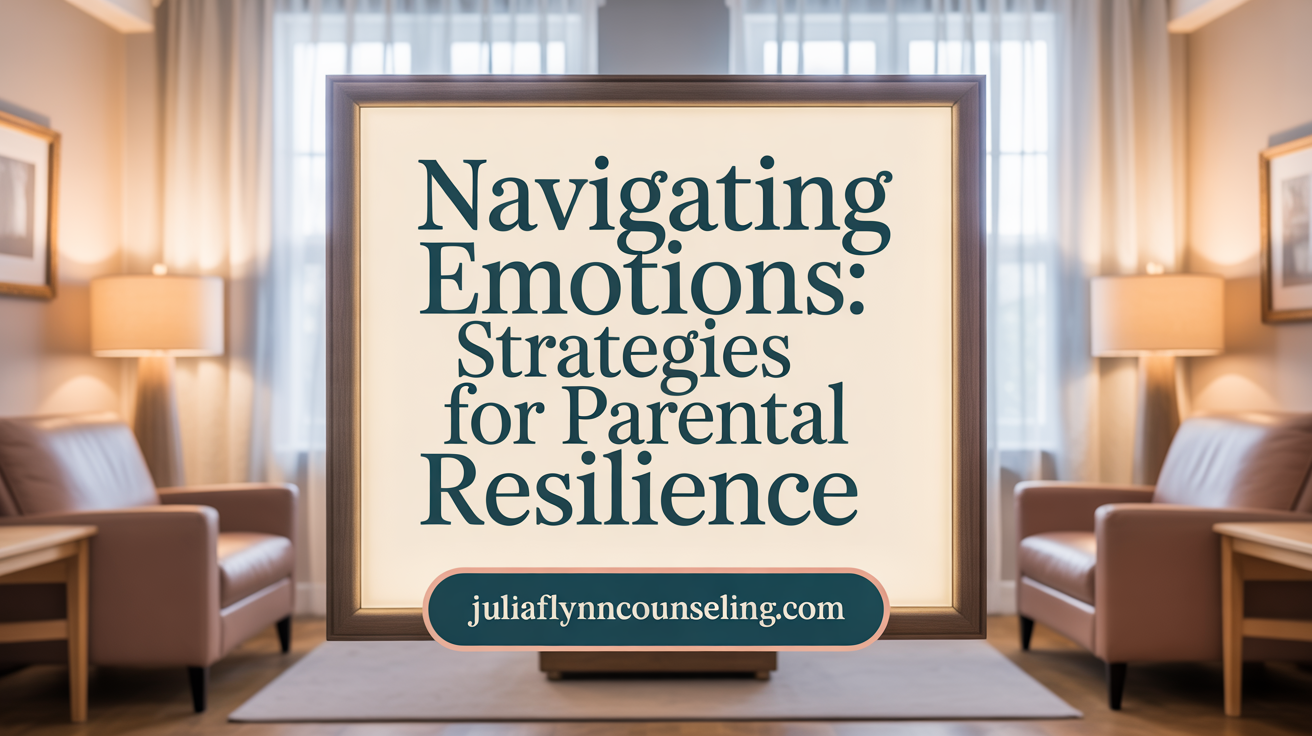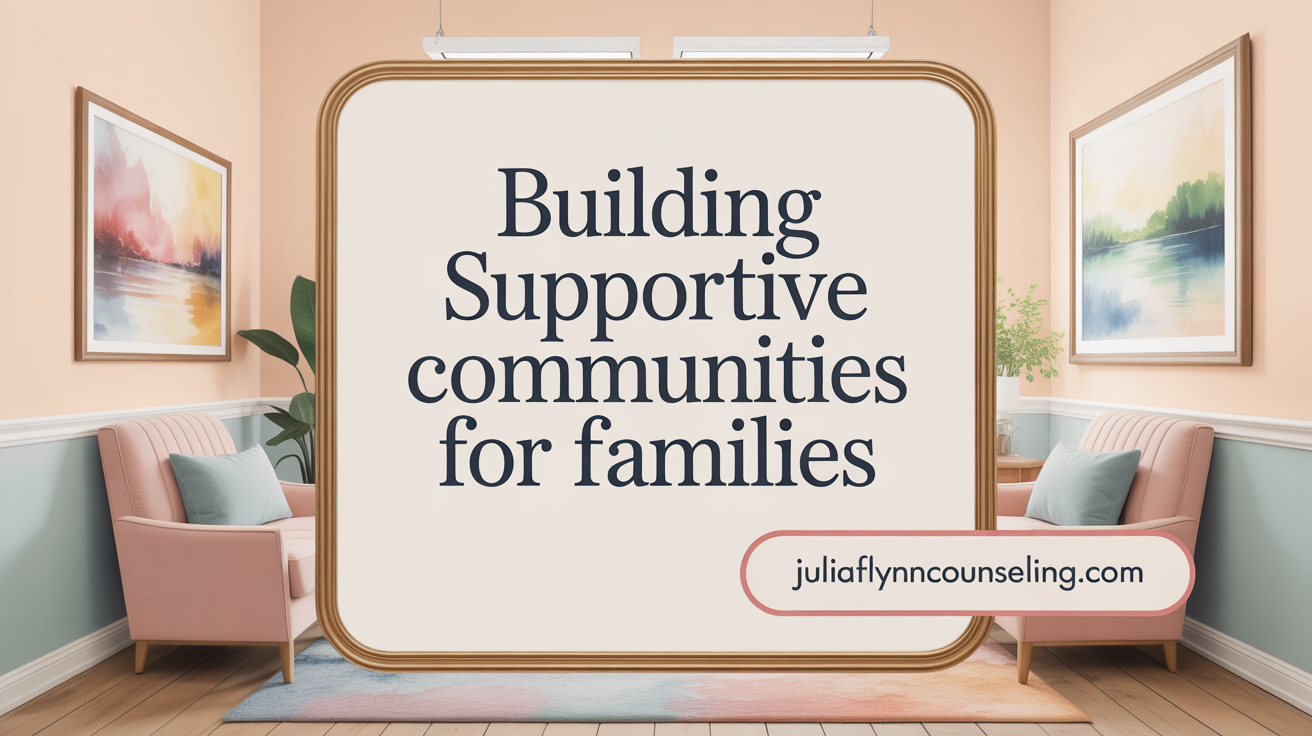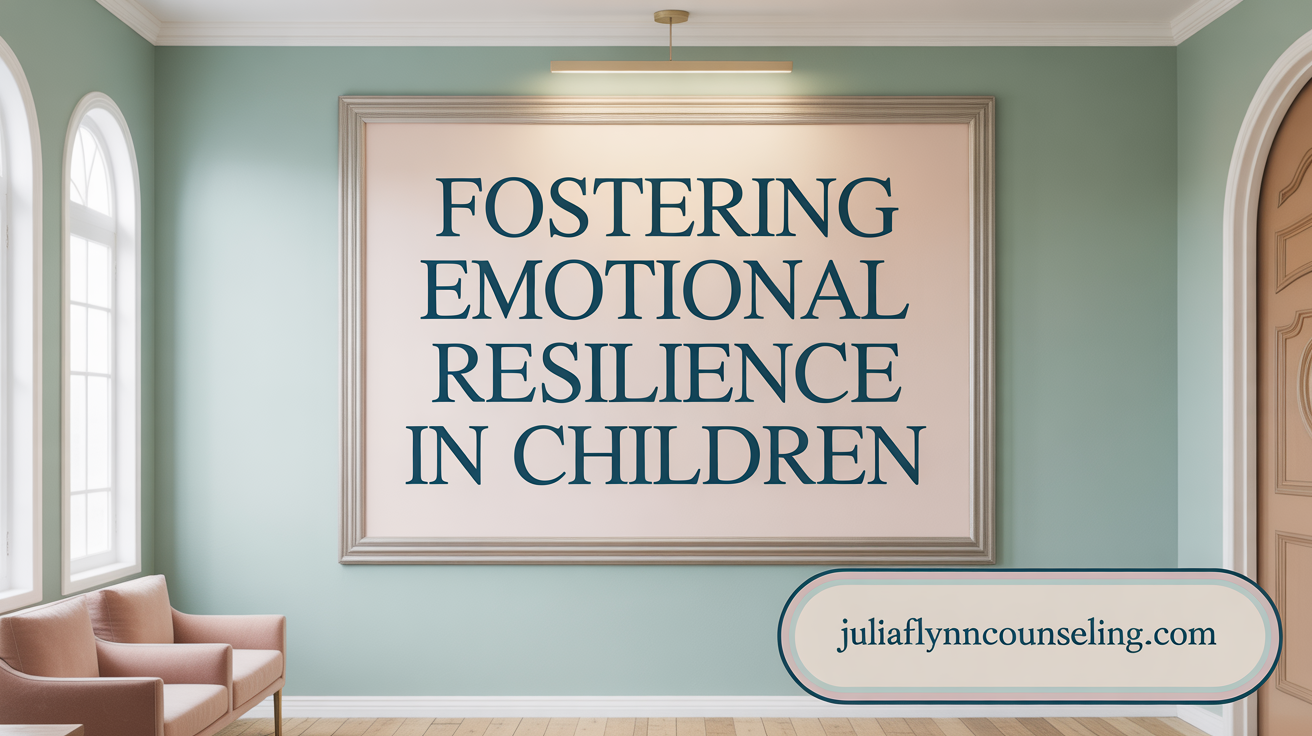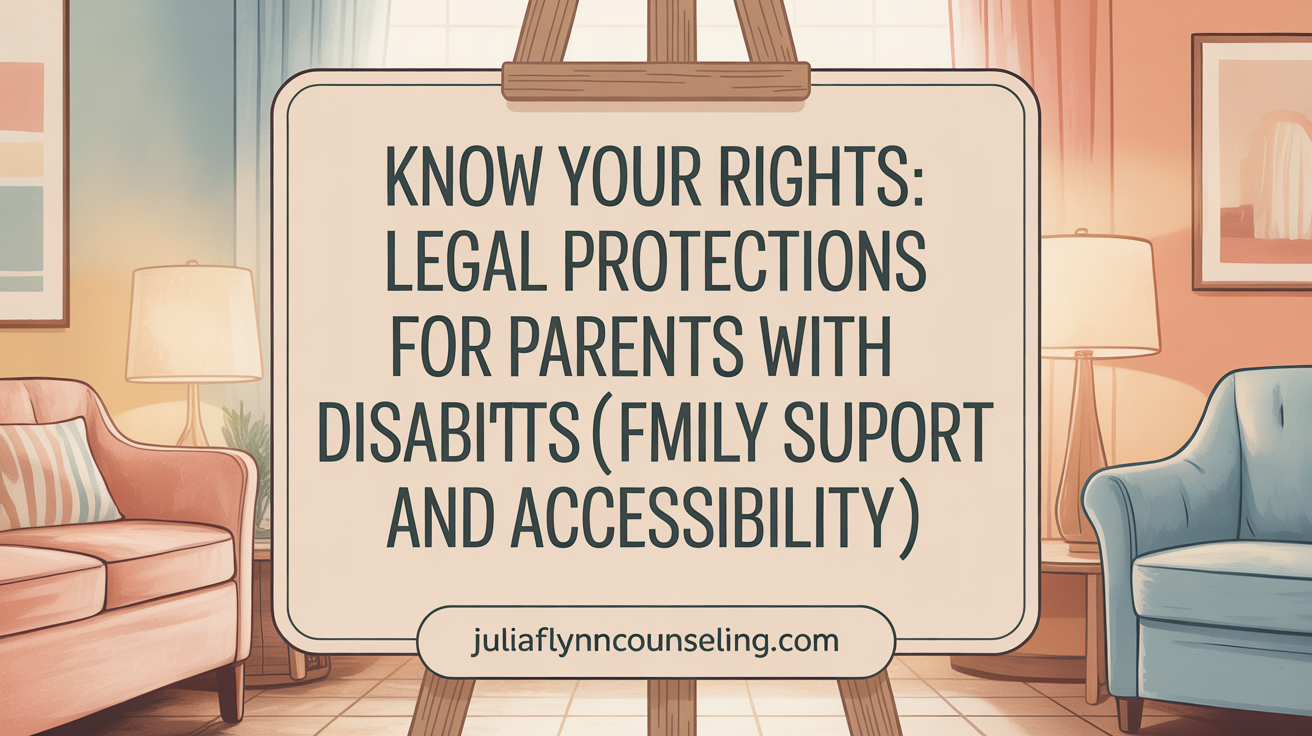Understanding the Emotional Landscape for Families
Families of children with disabilities face unique emotional challenges that require compassionate support and tailored resources. This article explores the complex emotional journey parents undergo, practical strategies for coping, and the network of support systems available. It highlights the importance of peer support, education, and systemic advocacy in fostering emotional well-being and resilience for entire families.
The Emotional Impact on Parents and Families
How does having a child with a disability affect the emotional and mental health of parents?
Parents caring for children with disabilities often face significant emotional and mental health challenges. The diagnosis itself can trigger intense feelings of grief, loss, and uncertainty about the future. As children grow, parents may experience fluctuating emotions—ranging from hope and love to sadness and frustration.
Many parents report experiencing chronic stress, anxiety, and even depression. Feelings of guilt, anger, jealousy, and resentment are also common, especially when balancing caregiving responsibilities with their own needs. These emotional reactions can sometimes lead to social isolation, as caregivers might withdraw from community activities due to stigma or exhaustion.
Financial burdens add another layer of stress, as families often manage expenses related to therapies, medical care, and adaptive equipment. These ongoing pressures can impact parental well-being and family dynamics.
Supportive interventions, including emotional counseling, peer support networks, and understanding healthcare providers, are vital. They help parents cope with the emotional toll, foster resilience, and create a more positive environment for the entire family.
How Parents Cope: Emotional Resilience and Adaptation

How do parents cope with children with disabilities?
Parents of children with disabilities often face an emotional journey marked by a mix of stress, grief, hope, and resilience. To navigate these complex feelings, many seek out support from both specialized caregiver groups and broader community networks. These support systems provide emotional reassurance, practical advice, and a sense of belonging, which can alleviate feelings of isolation.
Acceptance plays a crucial role in coping. Parents work on accepting their child's condition, which often involves a process of grieving the loss of an 'ideal' picture of parenthood, while moving toward focusing on their child's opportunities to flourish. Educating themselves about the child's disability allows parents to feel more confident and manage daily challenges more effectively. Establishing consistent routines, utilizing assistive technologies, and promoting positive behaviors through supportive strategies are practical ways to ease caregiving.
Practicing emotional self-care, such as engaging in mindfulness exercises like deep breathing, yoga, or meditation, helps parents manage stress and prevent burnout. Maintaining honest communication with family and friends is also essential. Support networks, whether online or in-person, offer vital emotional outlets and practical guidance.
Furthermore, advocating for their child's needs through education and healthcare services empowers parents. It fosters a sense of agency and control, which is vital for emotional resilience. Overall, a combination of external support, ongoing education, routines, self-care, and advocacy helps parents adapt and thrive despite the challenges they may face.
Harnessing Peer and Community Support Networks

Role of peer support groups and parent-to-parent programs
Peer support groups and parent-to-parent programs serve as vital lifelines for families of children with disabilities. These programs connect experienced parents with those newly navigating their child's diagnosis, offering emotional understanding, practical advice, and shared experiences. Such programs often operate through community organizations or online platforms, providing accessible and relatable support tailored to unique family situations.
Impact of peer support on reducing isolation and improving emotional well-being
Participating in peer support networks significantly reduces feelings of social isolation, a common challenge for many families. Sharing stories and coping strategies fosters a sense of belonging and empowerment. Many parents report that engaging with others who truly understand their journey alleviates emotional distress, builds resilience, and enhances overall well-being.
Examples of online and in-person support communities
Numerous online communities, such as Facebook groups like "Mommies of Miracles" and forums like the Asperger/Autism Network (AANE), offer parents a platform to exchange resources and emotional support. In-person groups, often facilitated by organizations such as Parent to Parent USA or local charities, meet regularly to share experiences, provide encouragement, and coordinate advocacy efforts. These varied formats ensure broad accessibility and ongoing community engagement.
Factors influencing participation and benefits gained from peer networks
Several factors affect a family's likelihood to engage with peer networks. Facilitator qualities, such as empathy and experience, play a crucial role. Openness to sharing, organizational support, and logistical considerations like childcare also impact participation. Benefits include increased emotional resilience, practical problem-solving skills, advocacy abilities, and a strengthened sense of hope. The synergy of these networks helps families develop resilience, foster optimism, and build a supportive community dedicated to navigating the challenges of raising children with disabilities.
| Support Type | Examples | Benefits | Notes |
|---|---|---|---|
| Peer Support | Facebook groups, local support groups | Emotional comfort, shared experiences | Both online and face-to-face options available |
| Parent-to-Parent | Structured matching programs | Guidance, empathy, resource sharing | Facilitated by organizations like Parent to Parent USA |
| Online Forums | DailyStrength, Autism support forums | Accessibility, variety of experiences | Can be accessed 24/7 for ongoing support |
| In-Person Meetups | Community events, support circles | Personal connection, community engagement | Often organized by local charities or support groups |
Evidence-Based Interventions and Educational Resources
What is family-centered care and what benefits does it offer?
Family-centered care is a fundamental approach that emphasizes collaboration between healthcare providers and families. It recognizes the importance of involving parents and caregivers in decision-making to support the child’s well-being.
This model not only enhances child outcomes by ensuring their needs are prioritized, but it also improves parents' emotional health by making them active partners in care. When families feel heard and respected, their confidence and satisfaction grow, creating a stronger foundation for developmental progress.
Which instructional and parenting programs are effective?
Programs like Triple P (Positive Parenting Program) and Incredible Years have been extensively studied for their positive impact on families. These evidence-based parent training programs focus on improving parenting skills, which in turn reduces problematic behaviors in children.
Participants learn strategies to foster better parent-child relationships, manage challenging behaviors, and promote social and emotional development. Many families report feeling more empowered and less stressed after completing these programs.
What interventions support children with autism spectrum disorder (ASD)?
Early, targeted interventions are crucial for children with ASD. Programs like the Early Start Denver Model and Project ImPACT are designed to promote developmental skills and social engagement.
These programs focus on enhancing joint attention, social interaction, and communication, which are vital for emotional bonding and growth. Early intensive support can significantly improve long-term outcomes and quality of life for children with ASD.
How do behavior management and mental health interventions help?
Positive behavior support (PBIS) and parent management training are effective approaches for managing challenging behaviors. These strategies teach parents and caregivers how to reinforce positive behaviors and establish consistent routines.
Supporting mental health through counseling, support groups, and specialized therapies is also essential. Addressing issues like stress, anxiety, and depression in families helps improve overall well-being, making caregiving more manageable.
Incorporating these evidence-based interventions into family support services offers a comprehensive way to promote emotional resilience and positive development for children with disabilities and their families.
| Approach | Focus Area | Description |
|---|---|---|
| Family-centered care | Child and family well-being | Collaborative decision-making, improved outcomes |
| Instructional programs | Parenting skills | Programs like Triple P and Incredible Years |
| Autism interventions | Developmental skills | Early Start Denver Model, Project ImPACT |
| Behavior management | Challenging behaviors | PBIS, parent management training |
| Mental health | Emotional support | Counseling, peer support, therapy |
For more information, search: Effective interventions supporting families of children with disabilities.
Practical Resources and Strategies Supporting Families

What practical strategies and resources are available to support families of children with disabilities?
Families caring for children with disabilities face many challenges, but numerous resources and strategies are available to ease their journey. Accessing local and national organizations provides vital support through services such as respite care, counseling, and informational resources.
Support organizations like Parent to Parent USA, The Caregiver Action Network, and Families Together, Inc., offer emotional support, guidance, and connections to other families facing similar situations. These groups often facilitate peer-to-peer support, which can significantly reduce feelings of isolation.
Online platforms have become an essential part of family support networks. Forums, social media groups, and websites like DailyStrength, Mommies of Miracles, and Autism Support Networks serve as accessible spaces where parents can share experiences, ask questions, and gain encouragement. These virtual communities allow for the exchange of practical tips on managing daily caregiving tasks and navigating educational or health services.
Respite care services and caregiver assessments are practical tools designed to provide temporary relief to parent caregivers. Respite enables parents to rest, tend to their well-being, or handle personal matters, which is crucial for maintaining emotional health.
Educational events, workshops, and resource packets foster better understanding and management of children’s conditions. Organizations such as Families Hands & Voices and Support for Families organize conferences, training sessions, and provide printed materials to help parents develop skills supportive of their child's development and emotional welfare.
For example, support programs like Triple P and Incredible Years focus on positive parenting techniques that help reduce behavioral issues and strengthen parent-child relationships. Early intervention programs, including tools for developmental and behavioral support, emphasize tailored approaches to meet individual needs.
Connecting with community resources and local clinics helps families access specialized services, which may include speech therapy, behavioral interventions, or mental health counseling. These supports are vital for promoting emotional resilience and well-being.
In summary, families can utilize a combination of support groups, online communities, educational initiatives, and practical services like respite care to navigate the challenges of raising children with disabilities. These resources not only provide tangible assistance but also foster a sense of belonging and hope.
| Resource Type | Examples | Purpose |
|---|---|---|
| Support Organizations | Parent to Parent USA, The Caregiver Action Network, Families Together | Emotional support, guidance, peer connection |
| Online Support Platforms | DailyStrength, Mommies of Miracles, Autism Support Networks | Sharing experiences, advice, reducing isolation |
| Respite Care & Assessments | Local community services, healthcare providers | Temporary relief, caregiver health |
| Educational Events & Materials | Family support workshops, fact sheets, videos | Skill development, understanding conditions |
Engaging with these practical tools can significantly improve the caregiving experience, providing comfort, knowledge, and necessary relief for families of children with disabilities.
Supporting Emotional Well-being of Children with Intellectual Disabilities

Recognizing and addressing emotional needs of children
Children with intellectual disabilities often experience a range of deep emotions, including frustration or sadness, and may express these feelings differently from their peers. As caregivers, it’s essential to observe non-verbal cues, behavior patterns, and emotional expressions to understand what each child needs.
Creating a supportive environment that provides routine and consistency can significantly help in reducing emotional distress. Encouraging children to express their feelings through words, pictures, music, or other creative outlets helps build their emotional vocabulary and makes it easier for them to seek help when needed.
Promoting mental health and building self-esteem
Fostering positive mental health is vital for helping children develop confidence, resilience, and a positive self-image. Celebrating their strengths and talents, setting achievable goals, and offering regular encouragement can boost self-esteem.
Providing opportunities for social interaction, whether through supervised activities or social skills training, can improve their emotional development. Using positive reinforcement and therapeutic activities such as art or music therapy also promote emotional expression and resilience.
Therapeutic and social interaction approaches
Engaging children in activities like art, music, or movement therapy facilitates emotional expression and helps reduce anxiety. Mindfulness and relaxation techniques, such as deep breathing exercises, yoga, or meditation, can help children manage stressful feelings.
Working closely with pediatricians, psychologists, and educators allows for tailored support strategies. Developing individualized education programs (IEPs) that include emotional goals ensures that support meets each child's specific needs.
Importance of consistent nurturing environments
A stable, warm, and predictable environment provides a sense of safety that is crucial for emotional well-being. Building routines and routines help children feel secure and reduce behavioral challenges caused by emotional distress.
Supporting children’s emotional growth also involves engaging in regular communication, showing patience, and understanding their unique experiences and feelings. This approach fosters a stronger emotional connection and helps children thrive despite their disabilities.
Legal Protections and Advocacy for Families

What is the Americans with Disabilities Act (ADA) and how does it protect parents with disabilities?
The ADA is a landmark civil rights law enacted in 1990 that aims to prevent discrimination against individuals with disabilities across many areas of life. For parents with disabilities, this law offers crucial protections in employment, public services, and access to facilities.
In the context of family and child welfare, the ADA requires agencies and organizations to provide reasonable accommodations. This may include accessible communication tools, interpretation services, or modifications to standard procedures to fairly assess a parent's capabilities. It also mandates that agencies avoid stereotypes and misconceptions, ensuring that decisions about a parent’s ability to care for their child are based on individual assessments rather than biases.
Effective communication with parents who have disabilities is emphasized, guaranteeing they receive information in formats they can understand. These protections help ensure that parents with disabilities are treated equitably, with their parental rights upheld in legal, health, and welfare systems.
Moreover, advocacy plays an essential role in maintaining these protections. By raising awareness and guiding parents through legal processes, advocates help secure fair treatment and access to resources. Ultimately, the ADA promotes an inclusive approach enabling parents with disabilities to participate fully in family life and child-rearing, safeguarding their rights and fostering community supports.
Fostering Emotional Strength Through Support and Understanding
Supporting families of children with disabilities requires a multifaceted approach that acknowledges the extraordinary emotional landscape these families navigate daily. Through peer connections, evidence-based interventions, practical resources, and legal protections, families can find resilience, reduce isolation, and nurture both their child's and their own well-being. Emotional support is not only a pillar of caregiving but also a catalyst for hope, growth, and empowerment, forming the foundation for a more inclusive and compassionate community.
References
- Home - Support for Parents of Children with Disabilities
- Targeted Interventions Supporting Parents of Children with Special ...
- The Emotional Experience of Families of Children With Disabilities
- Emotional support for families of a disabled child - Scope
- Online Support Groups for Parents of Children with Special Needs
- Understanding the Implications of Peer Support for Families of ...
- Emotionally Supporting Children with Intellectual Disabilities
- Parent-to-parent peer support for parents of children with a disability
- Page 2: Emotional Reactions to Disability - Iris Peabody Vanderbilt
